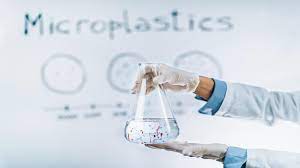
Breaking News
 Report -- Chairman of the Joint Chiefs of Staff Warns Trump of Deep and Serious Risks If U.S. ...
Report -- Chairman of the Joint Chiefs of Staff Warns Trump of Deep and Serious Risks If U.S. ...
 Another Drug Lord Killed. Is the Drug War Now Over?
Another Drug Lord Killed. Is the Drug War Now Over?
 EXCLUSIVE: Tens Of Thousands Of Americans Are Trapped In Puerto Vallarta & Other Mexican Cities...
EXCLUSIVE: Tens Of Thousands Of Americans Are Trapped In Puerto Vallarta & Other Mexican Cities...
 FBI Wins Court Ruling To Keep Twitter Payments Secret
FBI Wins Court Ruling To Keep Twitter Payments Secret
Top Tech News
 New Spray-on Powder Instantly Seals Life-Threatening Wounds in Battle or During Disasters
New Spray-on Powder Instantly Seals Life-Threatening Wounds in Battle or During Disasters
 AI-enhanced stethoscope excels at listening to our hearts
AI-enhanced stethoscope excels at listening to our hearts
 Flame-treated sunscreen keeps the zinc but cuts the smeary white look
Flame-treated sunscreen keeps the zinc but cuts the smeary white look
 Display hub adds three more screens powered through single USB port
Display hub adds three more screens powered through single USB port
 We Finally Know How Fast The Tesla Semi Will Charge: Very, Very Fast
We Finally Know How Fast The Tesla Semi Will Charge: Very, Very Fast
 Drone-launching underwater drone hitches a ride on ship and sub hulls
Drone-launching underwater drone hitches a ride on ship and sub hulls
 Humanoid Robots Get "Brains" As Dual-Use Fears Mount
Humanoid Robots Get "Brains" As Dual-Use Fears Mount
 SpaceX Authorized to Increase High Speed Internet Download Speeds 5X Through 2026
SpaceX Authorized to Increase High Speed Internet Download Speeds 5X Through 2026
 Space AI is the Key to the Technological Singularity
Space AI is the Key to the Technological Singularity
 Velocitor X-1 eVTOL could be beating the traffic in just a year
Velocitor X-1 eVTOL could be beating the traffic in just a year
First-of-a-kind study shows plastic's toxic effects on human cells

The latest discovery in this space looks at the volume of plastics we regularly consume through food and water and how this might impact human cells, finding that the concentrations we are exposed to can potentially have toxic effects.The body of knowledge around the ways plastics might influence our health is building rapidly on the back of research probing their effects on the human body. Much of this centers on plastic that has broken down in the ocean into tiny fragments known as microplastics, which studies have shown are consumed by marine creatures and can then travel up the food chain.We've also seen research demonstrating how microplastics can alter the shape of and de-cluster human lung cells and infiltrate the blood brain barrier in mice. Studies have also suggested chemicals in plastics can cause alarming damage to brain cells, found plastic particles in 93 percent of bottled water and in human stool samples collected all around the world.



